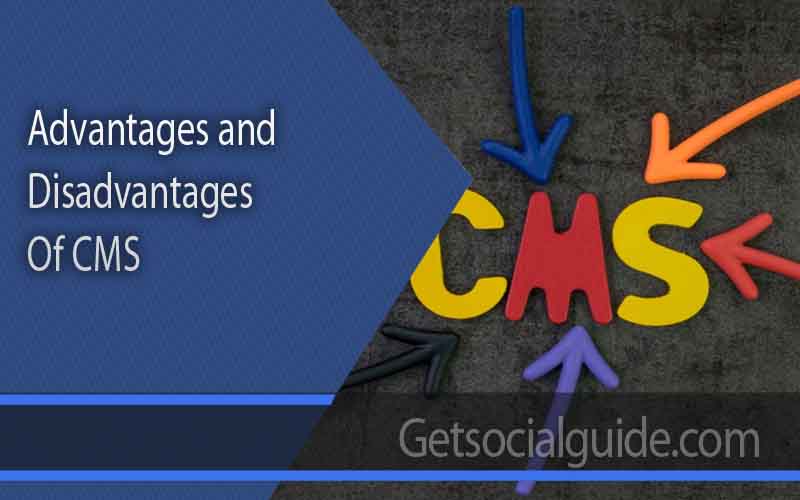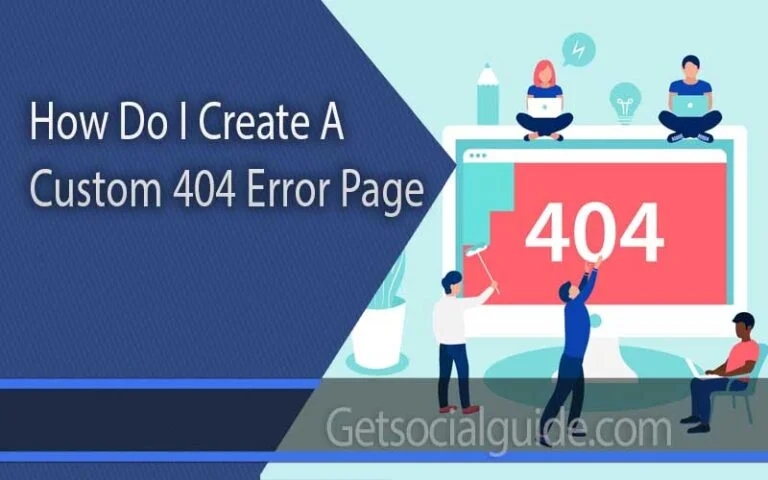What is a Content Management System (CMS) and how does it work?
When I design websites, I must always consider whether or not to include a Content Management System (CMS) in the design (CMS). In order to identify some of the issues that may arise, I would like to take on the role of an educator if that is permissible and identify some advantages and disadvantages for both you, the client, and myself as your website designer or web developer
For those who are unfamiliar with the term, a content management system (CMS) (specifically a web CMS) is a system that simplifies the publication of web content to websites, in particular by allowing content creators to submit content without the need for technical knowledge of HTML or the uploading of files.

CMS is an abbreviation that stands for the content management system. It is the quickest tool for developing a website, and it provides the user with a GUI (Graphical User Interface) for managing the website. Users do not need to be knowledgeable about databases or programming in order to create a website.
WordPress, Joomla, Webflow, Drupal, and Magento, to name a few of the most popular content management systems (CMS), are all available.
Themes are pre-installed on the majority of content management systems. You can also purchase premium themes from a variety of sources, including Envato Market and Template Monster, among others. Themes relieve you of the responsibility of designing your website. All that remains is for you to complete the installation of the theme and begin editing pages.
When it comes to managing content, a content management system (CMS) is ideal for small businesses and enterprises. Many content management systems (CMS) include drag and drop page builders, which make life even easier. All that is required of a user now is a theme or a user interface design. Even though content management systems (CMS) are ideal solutions for many businesses, they do not meet the needs of all businesses.
Advantages of Using a Content Management System (CMS) in Website Development
1. Development in a short period of time
A content management system (CMS) is the quickest tool for developing a web application that is also mobile-friendly. We can speed up the development of websites by utilizing content management systems (CMS).
2. Less backend coding is required.
The Content Management System (CMS) offers a number of plugins for the development of web-based applications. As a result, the user is not required to write any code.
3. Provide a Page Builder that is already built-in.
The primary goal of using a content management system is to save time. CMS systems include a built-in visual page creator that allows users to create, manage, and modify the content of a website. In-line editing eliminates the need for site content management, and the user can also create reusable dynamic blocks, as well as the ability to save the block-section and page layout as a template for reuse across multiple websites.
4. Simple to use even for non-technical people
Basic functions such as writing and publishing content, as well as adding media, are accessible to anyone who knows how to use a Content Management System.
Security is number five.
CMS has the best security features to protect the website’s content and database from being hacked by third-party hackers. Through the use of a permission base system, the site’s author can control who has access to his site.
6. It is search engine optimized.
Search engine optimization (SEO) friendly CMS websites exist because the implementation of SEO techniques on CMS websites is much simpler than on HTML websites. There are some plugins available that directly assist with SEO on a website’s backend and frontend.
7. Improve the quality of customer service.
Customers will benefit from improved customer services, such as contact forms and live chat for any urgent inquiries, as well as the resolution of website-related issues thanks to CMS.

The following are the reasons why CMSs are important:
– Productivity
It takes less than half the time and energy to update, add, and delete pages on your website when you use a content management system (CMS). You can also create a new site and make improvements to it.
The term “SEO” refers to search engine optimization (SEO)
Customizing rules that are critical for SEO, such as keeping the article up to date, title hierarchy, visuality, and user experience, is a simple process. As a result, you will be able to improve your website’s search engine rankings.
– The User’s Perspective
Some operations, such as search queries, memberships, and so on, are retained. Furthermore, it aids the site administrator by automatically indexing all newly published articles at the same time as they are published.
– Mobile Optimization is a term that refers to the process of optimizing a website for mobile devices.
With CMSs, there is no need to make any additional adjustments for mobile devices. Advanced content management systems (CMSs) provide mobile optimization.
WordPress and Joomla are two of the most commonly used content management systems (CMSs) for SEO.
- Drupal
- Opencart
- Magento
- Wix
WordPress is the first of these.
Matt Mullenweg founded the WordPress blogging platform in 2003. It is currently used by 90 percent of all websites on the internet. With its developments, it is constantly responding to the needs of the present.
Although it was initially used in the blog platform, it has since been incorporated into a variety of add-ons and developments, as well as commercial websites, to name a few.
- WordPress has a number of advantages.
- Because it is an open-source system, it has the potential to be improved.
- There are add-ons and themes available that are tailored to your requirements.
- There is a panel that is simple and easy to understand.
- Free.
- Has a dynamic organizational structure.
- Installation is simple and quick.
- User-friendly.
- There are a variety of third-party add-ons available.
- There are a plethora of other themes.
WordPress has a number of disadvantages.
- As a result of attachments containing information that is obscure or poorly researched, there may be security implications.
- It can be prohibitively expensive to purchase premium themes and add-ons for ordinary users and businesses.
- Increasing the number of extensions and additional code may cause the site’s performance to deteriorate.
- Joomla! is the second most popular CMS.
- Joomla was created by Mambo and released in 2003. The ability to create websites and develop applications online is provided by this tool.
It has a system that is a little difficult to use. It has become a popular content management system (CMS) because of its expandability. Visit the official website by clicking here.
What Should You Look for When Choosing a Content Management System?
- There are hundreds of CMS options to choose from, in addition to the ones listed above. Choosing the best content management system (CMS) for your needs can be a difficult task. When selecting a content management system (CMS) for yourself or your company, the following are some features to look for:
- Check to see if the content management system (CMS) has the page management features you require. When using a blogging CMS, for example, you may be limited in your page management capabilities, making it difficult to structure content beyond these limitations.
- Adding content: Is it possible to add or modify content in a simple and straightforward manner, regardless of the type of content?
- Varieties of templates and themes: If customizability is important to you, look for a content management system that supports a large number of templates and themes.
- User group flexibility: For organizations in which the workflow necessitates the collaboration of multiple users, a content management system (CMS) that can handle multiple users or user groups is a better choice.
- Support for multiple sites: Does the CMS allow for the installation of multiple sites?
- Security: If you run an eCommerce site or work with sensitive data, you should make certain that your content management system (CMS) is bulletproof in terms of security.
- Assist with documentation and the support community: Ensure that there are ample resources and that comprehensive documentation is readily available.
Cons of Using CMS in Website Development
Reliance on Plugins and Widgets 2. Complexity of the CMS
For the majority of their functionalities, users must rely on plugins and widgets to accomplish their goals.
Many plugins and widgets are expensive, with some costing hundreds of dollars or even thousands of dollars.
The speed with which the site loads
When compared to many other custom development options, the page speed of a web page designed using a CMS is noticeably slower than other options.
Upkeep and repair
CMS systems must be serviced on a regular basis in order to remain operational. A weekly maintenance schedule is required for some of the sites we have built, such as the Allegheny County Controller website, due to the high volume of traffic and the fact that the site is a high-profile target.
The system is not highly scalable.
Most CMS systems are designed to support a limited number of users; however, as content and traffic grow, you will need to customize the CMS system or switch to something more robust.
Functional requirements are restricted in scope.
If you are working on a larger project with multiple processes, workflows, and stakeholders, a content management system (CMS) will not be able to keep up with your functional needs.
The functionality of the back end is limited.
Because the back-end functionality is not available, it is not possible to expose API endpoints. As a result, the data and the platform cannot be used in mobile applications due to technical limitations.
To summarize – Advantages and Disadvantages Of CMS
If your website contains content that is constantly changing or being added to, such as press releases, events, or news stories, then using a content management system (CMS) can be extremely beneficial to you. For sites that are updated only once or twice a week, it may be more cost-effective to pay your developer for the work instead of doing it yourself.
Always a delicate balance or a compromise to be found, and for me, this is often achieved by restricting access to some areas of a CMS while providing CMS functionality for others, such as news items or events (although there are often better solutions to these problems beyond a CMS – which will be discussed later, so please come back now that you’re here!!)




Thank you for sharing this post with us.
Thank you, this is the article I was looking for. Btw may I know what you use for your great and fast website? I’m also planning to create a simple website for my business, but I need a domain and hosting recommendation. Can you recommend them or are there any alternatives?
Yes sure, please read https://getsocialguide.com/best-cheap-webhosting/
Thanks keep reading and sharing